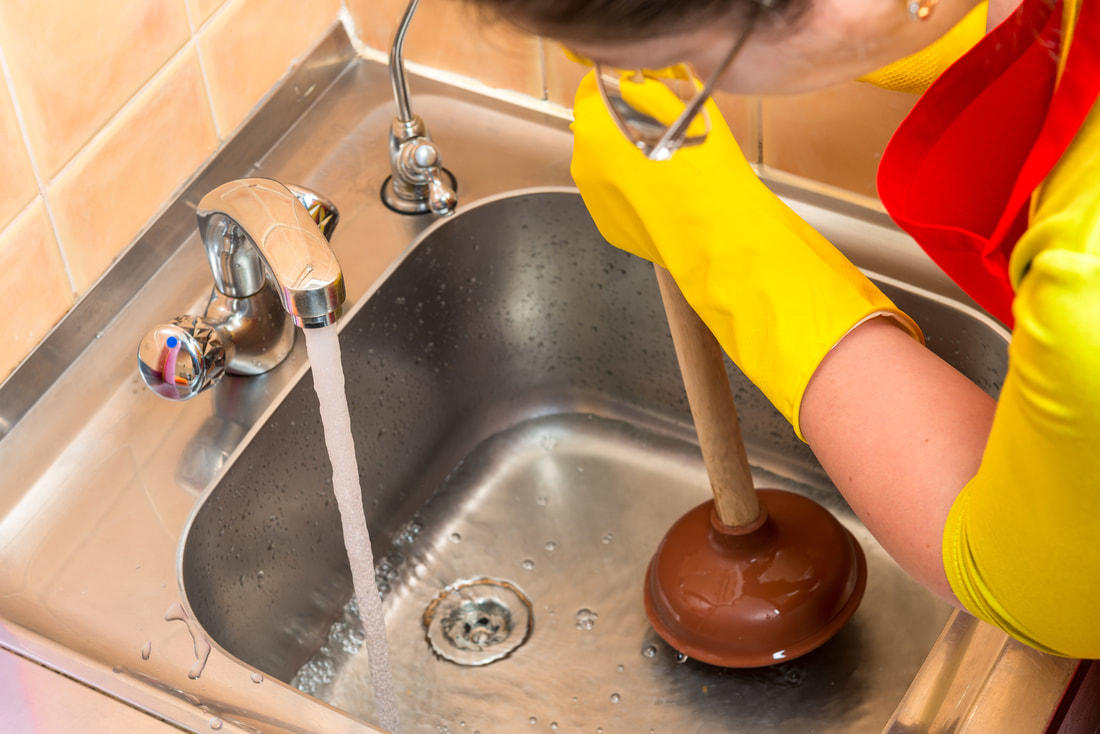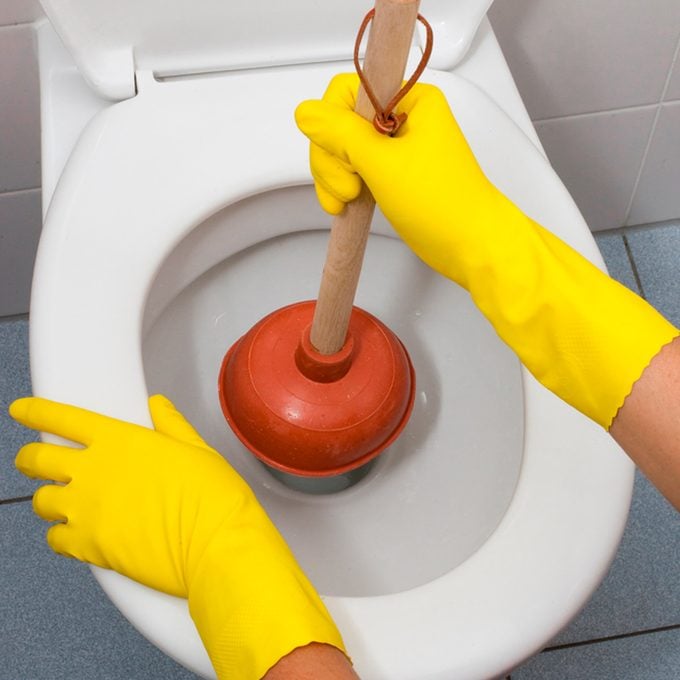Were you trying to locate information and facts involving Tips on How to Effectively Use a Plunger?

Intro
Correct maintenance of household drains is necessary for protecting against blockages and guaranteeing smooth water flow. One of the trick tools in every homeowner's toolkit is the plunger, together with different drain cleansers designed to tackle persistent blockages properly. This article explores just how to make use of bettors and drainpipe cleansers effectively to maintain your drains pipes streaming freely.
Area 1: Comprehending Bettors
Kinds of Plungers
There are numerous kinds of bettors readily available, each created for various sorts of drains pipes and clogs. The most usual types include cup bettors, flange plungers, and accordion plungers.
Just How Plungers Job
Plungers work on the concept of developing stress and suction to displace clogs. When appropriately applied over a drain, they produce a vacuum that can take out debris or separate obstructions.
Picking the Right Plunger
Picking the best plunger depends upon the type of drain and the nature of the clog. Cup plungers are ideal for sinks and tubs, while flange plungers are much better suited for commodes due to their style.
Typical Errors with Plungers
Preventing these blunders guarantees effective plunging: inappropriate seal around the drain, not enough pressure, and unclear bordering particles.
Section 2: Using Plungers Successfully
Prep work
Before diving, make sure the plunger covers the drain entirely and develops a limited seal. Clear any type of visible debris around the drain opening.
Strategy
Beginning with mild plunging activities to construct suction. Boost pressure slowly, utilizing a stable rhythm. Repeat as necessary until the drain removes.
Repairing Tips
If diving doesn't function, try adjusting the seal, applying petroleum jelly for a much better seal, or utilizing a different type of bettor.
Area 3: Comprehending Drainpipe Cleaners
Types of Drainpipe Cleaners
Drain pipes cleansers can be chemical or chemical. Chemical cleaners utilize strong chemicals to dissolve obstructions, while enzymatic cleansers use natural enzymes to break down organic matter.
Exactly How Drain Cleansers Work
Chemical cleansers react with clogs to dissolve them, while enzymatic cleansers break down organic materials like hair and grease without harming pipelines.
Security Factors to consider
Always use gloves and eye security when using chemical drain cleaners. Guarantee ample air flow and follow maker guidelines very carefully.
Eco-Friendly Alternatives
Think about utilizing vinegar and cooking soda or enzyme-based cleaners for environmentally friendly choices that are much safer for pipes and the setting.
Area 4: Using Drainpipe Cleaners Properly
Application Techniques
Pour chemical cleaners directly right into the drain opening. Enable them to help the suggested time prior to flushing with hot water. Enzymatic cleaners must sit over night.
Precautions
Prevent mixing different kinds of cleansers, as this can generate poisonous fumes. Never ever make use of chemical cleansers combined with a bettor, as spilling can occur.
Taking Care Of Stubborn Clogs
For relentless blockages, consider utilizing a pipes serpent or calling a specialist plumber to prevent damage to pipes.
Conclusion
In conclusion, comprehending exactly how to utilize plungers and drainpipe cleaners effectively is crucial for preserving healthy and balanced plumbing systems. By selecting the right tools and strategies, house owners can deal with minor blockages and stop major plumbing concerns down the line.
5 Steps on How to Use a Plunger Effectively
Creating a Seal: Place the rubber cup of the plunger firmly over the toilet drain hole to create an airtight seal. This seal is crucial to prevent air from escaping and ensure effective plunging.
Plunge Gently: Gently press the plunger down to compress the air inside without causing splashing. This careful action sets the stage for effective unclogging without creating a mess.
Maintaining Pressure: Consistently apply pressure to the plunger while pushing and pulling it up and down. This sustained pressure generates the force needed to dislodge the clog.
Breaking the Clog: Continue plunging until you feel the clog release. Look for the water to start draining, indicating successful removal of the blockage.
Flushing and Cleaning: After clearing the clog, flush the toilet to confirm it's working properly. Clean the plunger with warm, soapy water and disinfect it for future use to maintain hygiene.
Additional Tips on How to Correctly Use a Plunger
if you encounter resistance, add some water to the bowl to create better suction;
check the plunger for any rubber cracks to ensure it's in good condition;
exercise patience and persistence, as certain clogs might need multiple attempts.
Mistakes to Avoid when Using Toilet Plunger
avoid using excessive force, as it may damage the toilet;
don't rush the process; take your time to ensure a proper seal and pressure;
never use a plunger if you've recently used chemical drain cleaners
Conclusion
Mastering the art of how to properly use a plunger is a valuable skill for every homeowner. By employing the correct techniques, you can effectively address clogs and ensure your toilet functions smoothly. Patience, persistence, and proactive in maintaining your plunger's hygiene are key to success in this endeavor.
Armed with these skills and principles, you can confidently handle plumbing issues as they arise, promoting a well-functioning and hygienic home environment.
https://homealliance.com/blogs/how-to-effectively-use-a-plunger-the-ultimate-guide

Application Techniques
Pour chemical cleaners directly right into the drain opening. Enable them to help the suggested time prior to flushing with hot water. Enzymatic cleaners must sit over night.
Precautions
Prevent mixing different kinds of cleansers, as this can generate poisonous fumes. Never ever make use of chemical cleansers combined with a bettor, as spilling can occur.
Taking Care Of Stubborn Clogs
For relentless blockages, consider utilizing a pipes serpent or calling a specialist plumber to prevent damage to pipes.
Conclusion
In conclusion, comprehending exactly how to utilize plungers and drainpipe cleaners effectively is crucial for preserving healthy and balanced plumbing systems. By selecting the right tools and strategies, house owners can deal with minor blockages and stop major plumbing concerns down the line.
5 Steps on How to Use a Plunger Effectively
Creating a Seal: Place the rubber cup of the plunger firmly over the toilet drain hole to create an airtight seal. This seal is crucial to prevent air from escaping and ensure effective plunging. Plunge Gently: Gently press the plunger down to compress the air inside without causing splashing. This careful action sets the stage for effective unclogging without creating a mess. Maintaining Pressure: Consistently apply pressure to the plunger while pushing and pulling it up and down. This sustained pressure generates the force needed to dislodge the clog. Breaking the Clog: Continue plunging until you feel the clog release. Look for the water to start draining, indicating successful removal of the blockage. Flushing and Cleaning: After clearing the clog, flush the toilet to confirm it's working properly. Clean the plunger with warm, soapy water and disinfect it for future use to maintain hygiene. Additional Tips on How to Correctly Use a Plunger
if you encounter resistance, add some water to the bowl to create better suction; check the plunger for any rubber cracks to ensure it's in good condition; exercise patience and persistence, as certain clogs might need multiple attempts. Mistakes to Avoid when Using Toilet Plunger
avoid using excessive force, as it may damage the toilet; don't rush the process; take your time to ensure a proper seal and pressure; never use a plunger if you've recently used chemical drain cleaners Conclusion
Mastering the art of how to properly use a plunger is a valuable skill for every homeowner. By employing the correct techniques, you can effectively address clogs and ensure your toilet functions smoothly. Patience, persistence, and proactive in maintaining your plunger's hygiene are key to success in this endeavor.
Armed with these skills and principles, you can confidently handle plumbing issues as they arise, promoting a well-functioning and hygienic home environment.
https://homealliance.com/blogs/how-to-effectively-use-a-plunger-the-ultimate-guide

As a passionate reader about How To Use Your Toilet Plunger Correctly in 5 Easy Steps, I imagined sharing that blog post was worthwhile. Enjoyed our piece? Please share it. Help someone else locate it. Thanks a lot for being here. Return soon.
Click Here